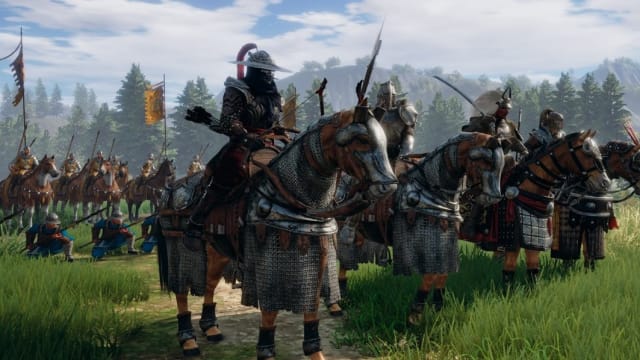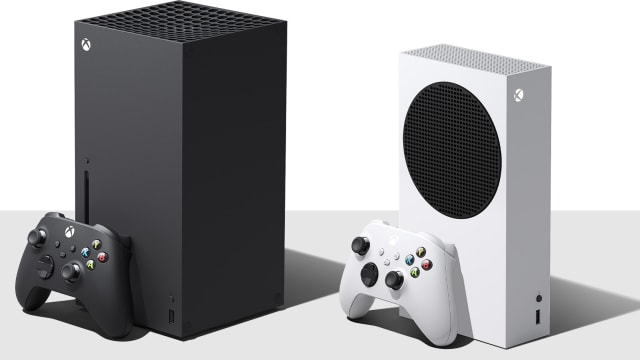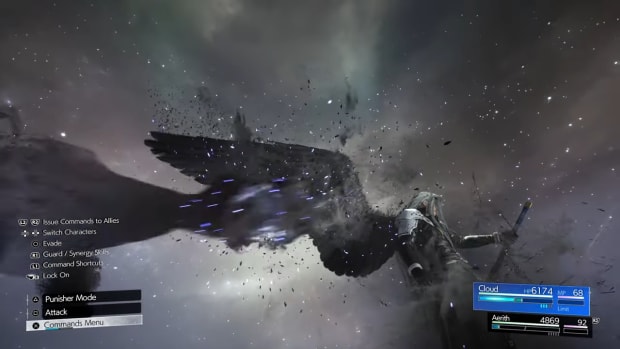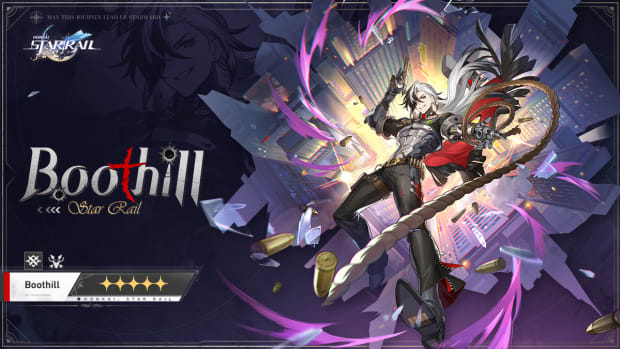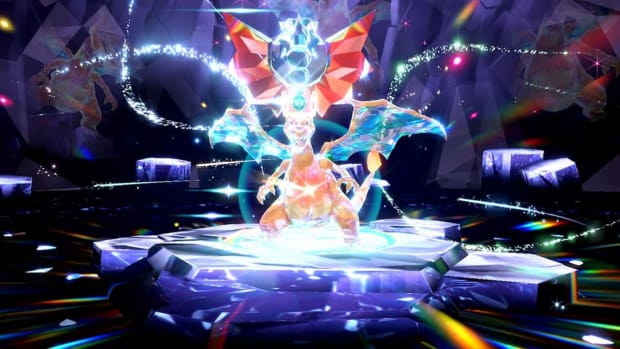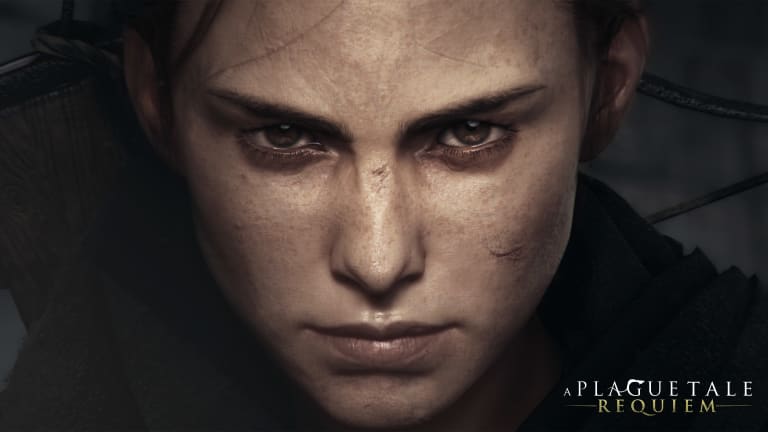
A Plague Tale BAFTA interview: how video games gave a 16-year-old actor her big break

Video games are a huge part of many people’s childhoods, but most don't spend their adolescence starring in them. A Plague Tale’s Charlotte McBurney is different. Landing a leading role before she learned to drive, today she finds herself nominated for one of the most prestigious awards in entertainment.
As I join her on the morning of the gaming BAFTAs, the 21-year-old is up for 2023's best performer award, competing against God of War’s Kratos and Call of Duty’s leading man. Not bad for her third acting gig.
“The whole thing feels very surreal,” she explains, shaking her head in disbelief. "I think my mum is more nervous than I am - she's my date tonight.”
Researching McBurney before our interview, I’m struck by just how little information I can find on her. The reason for the digital mystique? She started her acting career while still in high school. “I decided at 14 I wanted to be an actor full time, but my mom was like, ‘No that's not a thing… but you can join after-school classes.’”
Leaping at the chance, McBurney spent her evenings acting at the London charitable drama organization The Young Actress Theatre, where she quickly caught the eye of talent scouts. “I signed with an agency when I was 15, and the first audition that they sent me was for A Plague Tale: Innocence. I was very much like, ‘Oh, a video game? Okay, let's give this a shot!’”
Securing her big break before most kids have a summer job, McBurney found herself playing a video game heroine without ever picking up a controller. While her peers stressed about their GCSE exams, McBurney began navigating a strange new art form. “To be honest, I didn't have much understanding of what went into games,” she explains. “I was like, ‘Acting, in games, really?’! Then I started working on [Plague Tale] and my mind changed very quickly.
“It was all new, but [developer Asobo] very much took the time to teach us in session. They wouldn't expect a 16-year-old to know how to perform in video games or work with the mic.”
Thankfully, she wasn’t thrust into this strange new world alone, learning the ropes alongside her even younger co-star, the nine-year-old Logan Hannon, who plays her little brother in the game. “He was cool as a cucumber,” McBurney laughs. “I was 16 when we did our first chemistry test together, but he was the one checking in with me! I was terrified!”
As anyone who’s played Plague Tale and its sequel can attest, McBurney’s initial fears were unfounded. In this dark, medieval adventure, you’re put in the shoes of the resilient Amicia, guiding her younger brother Hugo to safety as they attempt to flee the horrors of an increasingly bleak, war-torn 14th-century France. It’s an intense and emotionally resonant journey, with both actors’ performances perfectly capturing the fierce bond that forms between the siblings.
In the world of gaming, any new IP is deemed a huge risk, and it wasn’t just its young actress that was unsure of how A Plague Tale would do. “The devs and everyone around the game were kind of keeping my expectations low,” she explains. “They were like, ‘Look, this is our passion project, but this is a small studio, and we have no idea how people are going to receive this.’”
Millions of sales and multiple award nods later, the series has undoubtedly made its mark. After five years embodying the protagonist, McBurney feels as though she has embarked on a similarly heroic journey. “The BAFTA nomination was so lovely,” she says. “When we were doing [the first Plague Tale], Mark Healy, the director, used to encourage me whenever I did a good take, saying, ‘Ohh that's the BAFTA nomination!’ And I was like ‘Wait, there are video game BAFTAs?’ So it's been a dream since then. It was five years for me and even longer of Asobo’s work.”
Yet even for BAFTA-nominated actors, imposter syndrome rears its ugly head. “With acting, it's a funny job,” McBurney says. “Sometimes you're like, ‘Was that work?’ Because I think I just came in and said words and screamed. It’s why some actors go very method and do a lot of background research, to feel that they’ve worked. So it's lovely to have this all recognized, especially being British, as [BAFTA] is something that people recognize outside of games as well.”
After carrying the brunt of the story across two games, McBurney relished the opportunity to play a supporting character in her next role, Final Fantasy 16. “What was lovely about Final Fantasy is that I'm not the lead,” McBurney laughs. “So there was a little bit less pressure.
“With Plague Tale I was in pretty much every scene. So I had full knowledge of the entire plot, whereas with Final Fantasy they give you only the amount of context that you need for that scene. So I still don't know the full story, but I'm very excited to find out.”
Where Plague Tale's motion capture was mapped to McBurney’s vocal performance by actress Robyn Wolf, McBurney’s facial expressions are used in her performance in Final Fantasy. “It was very weird doing facial capture because you're still constricted to not being able to move too much,” she explains. “You want to be careful of the microphone, but you’re suddenly hyper-focused on how much you can convey with particular muscles in your face. I would love to do more facial capture though, because coming from a theatre background, I find it really weird to put all of that emotion into just your vocal muscles.”
Despite starring alongside legendary British actor Ralph Ineson, McBurney believes that fans will be most impressed with Final Fantasy 16’s leading man. “I have become very close with Ben Stark - who plays Clive - and I think no one could be better for this part,” McBurney says. “He's such a huge Final Fantasy fan, so he’s really taking in every single moment. He appreciates the fans because he is one, so I think that's going to be lovely for the fan base.”
After her stint in Final Fantasy 16, she found herself on a pandemic-mandated break, before returning to the increasingly aptly named Plague Tale for the BAFTA-nominated sequel, Requiem. “I felt more confident the second time around,” she says. “Not only [had I] spent many hours in the booth but I also came back to a character that I knew, and there was [also] an expectation - we had a fan base. It felt like we owed people something.
“There's definitely a huge misconception that there's no story [in games], which is mad! I think after something like The Last of Us, you've got a load of non-gamers going, ‘Wow, is this actually what games are like?’ Many people wrongly believe all games are shooters. I've definitely done voices - and a lot of my friends have done voices - where you kind of shout ‘Get down!’‘ but this isn’t all that games have to offer.
“I tend to describe A Plague Tale to people as an extremely long animated film. There are so many scenes where it's about intimate moments between her and her brother. And that's essential so that you care enough to play. I think the difference between film and games is the difference between sympathy and empathy. When you watch someone on TV you feel sorry for them. Whereas when you play a game, you are the character, and you feel their pain.”
It’s this level of connection between player and character that really inspired McBurney, whose social media is inundated with messages from grateful fans. “The community really surprised me,” she says. “I was pre-warned going into the gaming world, particularly as a young woman, that it can be a little scary, and some people can be really horrible. But Plague Tale players are really nice. People spend so long with these voices that I get these very moving messages about how much people are connecting to these characters. In Requiem, Amicia suffers from a lot of anxiety, and the mental repercussions of her actions, and I've had a lot of messages from people about their own mental health saying that it was lovely to feel represented. I never expected that.”
Now as she waits for the release and critical reception of Final Fantasy 16, the BAFTA-nominated actress finds herself in a less-than-glamorous position. One night she’s rubbing shoulders with Christopher Judge at the BAFTAs, and the next she’s waiting tables and nannying, trying to stay afloat between acting jobs. It’s only a matter of time before more casting directors notice her potential, however, and a BAFTA nomination can’t hurt. The question is, what’s next for the rising star?
“I would love to continue in the world of games,” she says. “I feel very at home here. I know going into film and theatre and TV that I'm going to be completely fresh, which is scary but really exciting too. I write and direct as well, so I'm trying to push some of my own projects out in the world of games. I really want to do some motion capture and just to try everything. I want to do parts that are completely different from myself and parts that are really like me.”
Despite her brilliant performance in Requiem, McBurney narrowly missed out when it came to winning the coveted BAFTA. Yet with many actors working for decades to reach this point in their career, whether inside games or beyond, there’s no question that McBurney’s acting ascent has only just begun.


